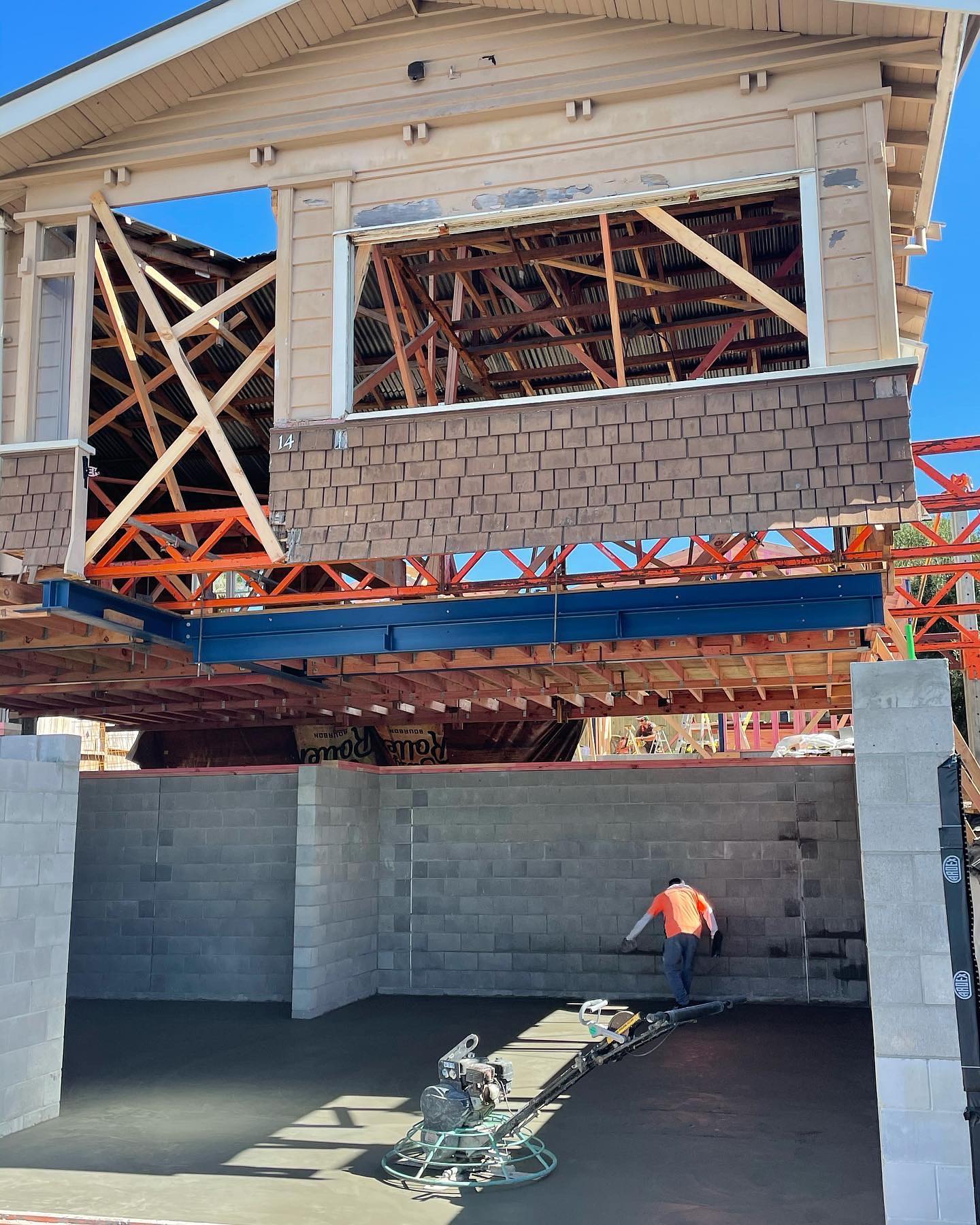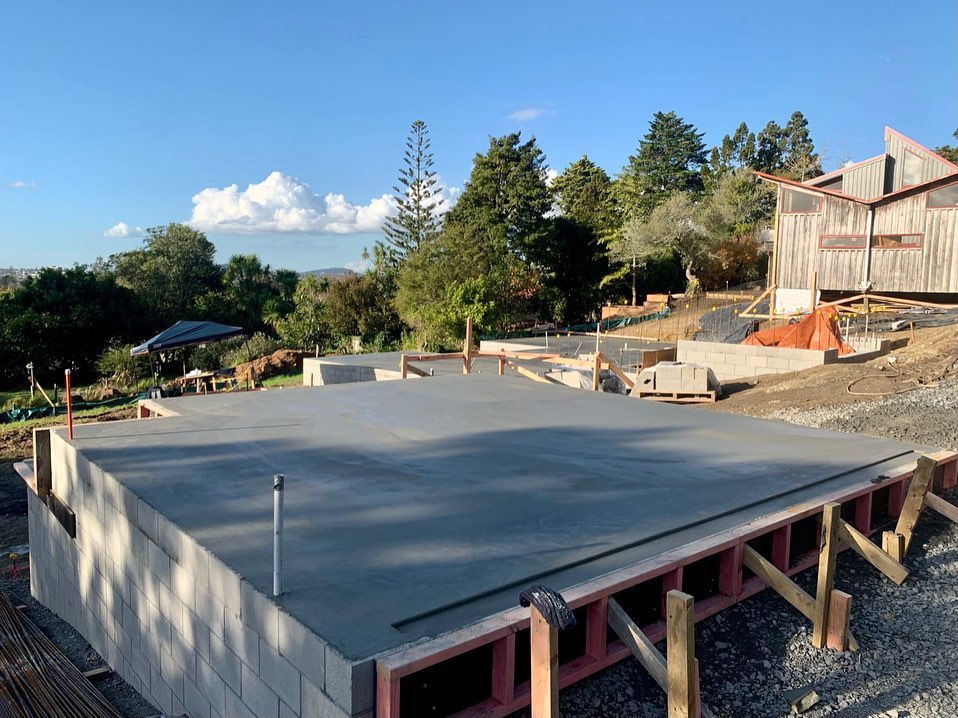

Concrete Slabs
Concrete House Slabs | Concrete Garage Slabs
Concrete House & Garage Slabs Auckland-wide
The award-winning Concrete-iT team works on concrete slab projects in Auckland city and throughout Greater Auckland. Our services (standalone or end-to-end) include laying Residential concrete slabs and floors, for homes and garages.
Concrete Slab-On-Ground & Concrete Slab-On-Grade
- Siteworks & Subgrade Preparation
- Demolish & remove old concrete/hard landscaping
- Boxing (Formwork)
- Supply concrete & pumps
- Thermal Insulation & Vapour Barriers
- Damp-Proof Membranes (DPM)
- Embedded Heating/Cooling Systems
- Concrete Slab Placing (pouring/laying)
- Floating & Trowelling
- Screeding & Levelling
- Concrete Cutting
- Concrete Polishing & Grinding
- Decorative Concrete Finishes
- Acid Wash, Acid Etch
- Concrete Sealing/Waterproofing
Master Concrete Placers
The key to constructing quality concrete slabs is the skill of your concrete contractor, combined with using the correct processes and products.
As a Member of the New Zealand Concrete Contractors Association (formerly NZ Master Concrete Placers Association), Concrete-iT abides by the Code of Ethics of the Association, New Zealand regulations and the NZ Building Code.

Siteworks & Subgrade Preparation
Concrete-iT concrete slab work can include demolishing existing concrete and hard landscaping, topsoil removal, subgrade filling and compacting, and levelling.
If required, we can also identify whether any drainage work is required e.g. sumps, drains.
Decorative Concrete Finishes
Concrete-iT are experts in applying/incorporating decorative finishes such as Decorative Cuts, Stamping, Patterns, Inlays (e.g. metal strips, timber, glass, plastic), Colours/Oxides/Staining, Exposed Aggregate.
Learn more: Decorative Concrete Floors
FAQ: CONCRETE SLABS
Click to see Answers. If your question isn’t below, please contact Concrete-iT.
How much do concrete slabs cost per square metre(m2)?
Concrete Slab Placing (Rate excludes management, travel, plant hire and establishment fees):
Concrete Slab 100mm thick, standard finish: approx. $18.50 +GST per m2.
Supply and Place Concrete Slab (Rate excludes management, travel, plant hire and establishment fees):
Concrete Slab 100mm thick. Standard finish & if easy site access for concrete truck: approx. $51 +GST per m2.
Are concrete slab floors more cost-effective than suspended timber floors?
On level building platforms, concrete slab floors are typically more cost-effective than suspended timber floors.
How long do concrete slabs need to cure?
Concrete slabs should be cured for at least 24 to 48 hours before formwork is removed and the surface can be walked on. After 7 days, the concrete is partially cured and strong enough for equipment and vehicles. After 28 days, concrete slabs should be fully cured.
Poor curing of concrete slabs can reduce concrete strength by up to 50%, and increase the risk of shrinkage-induced cracking, despite control joints being saw-cut. Cracking typically becomes noticeable after two weeks at the earliest and cracks can continue to widen for months. The risk of shrinkage cracking is minimised by using reinforcing, the correct positioning of control joints, compaction and using the appropriate concrete mix.
Effective curing also improves the durability and abrasion resistance of concrete slabs.
Do concrete slabs need reinforcing?
Unreinforced concrete slab-on-ground floors aren’t permitted anywhere in New Zealand, unless it is a specific engineering design approved by the local council. All perimeter foundations are to be tied to the concrete slab with reinforcing steel.
Concrete-iT slabs are designed to meet the NZ Building Code structural performance requirements.
Do concrete slab floors need to be insulated?
Concrete slab floors should be insulated underneath the slab and around slab edges, for protection from moisture/vapour, soil gases and other potential contaminants.
Are concrete slab floors compatible with Passive Design?
A concrete slab floor exposed to direct sunlight is one of the most effective ways to absorb and store warmth in a home. Properly designed with maximum exposure to Winter sun over the middle of the day, concrete slab floors absorb energy from the sun, then radiate warmth as the temperature drops in the evening. On Summer days, concrete slab floors can absorb heat from the surrounding air and help keep the home cooler.

